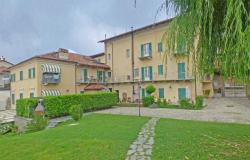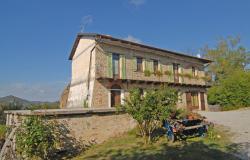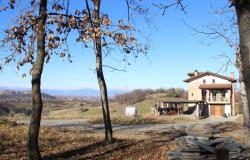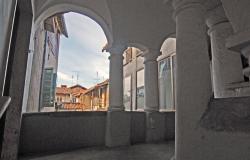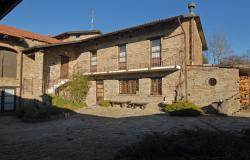 Italy and America are set to remember Italian literary great and Holocaust witness Primo Levi on the 20th anniversary of his death.
Italy and America are set to remember Italian literary great and Holocaust witness Primo Levi on the 20th anniversary of his death.
The Turin-born writer and industrial chemist - a skill that helped save him in Auschwitz - is to have a plaque unveiled in front of his old chemistry faculty at Turin University.
The ceremony will take place on April 11, 20 years to the day since Levi threw himself down a stairwell to his death outside his flat.
On the same day, Turin's new Civic Library will be named after him.
There will also be book readings, the premiere of a Levi-inspired orchestral piece by top Spanish composer Luis de Pablo, broadcast live on RAI state radio, and a show at Turin's Resistance and Deportation Museum.
In other events, Einaudi is publishing two new books on Levi and RAI radio is running a series of programmes on his life and work from April 9 to 20, called I Am A Centaur (the mythological half-horse, half-man he imagined himself as).
Across the Atlantic, a new collection of Levi's stories will be presented at the New York Public Library on April 12 by Bob Weill, a Levi specialist who is aiming to bring out a definitive edition of Levi's complete works in 2010.
One of America's greatest living writers and a friend of Levi's, Philip Roth, will be the star speaker at a Levi conference on April 15-16 organised by Columbia University and the Italian Cultural Institute.
Other speakers will include the journalist and writer Alexander Stille, author of the acclaimed book Benevolence and Betrayal: Five Italian Jewish Families Under Fascism.
Levi is the most widely translated Italian writer in the world.
His Holocaust masterpieces, If This Is A Man and The Truce (US: The Reawakening), have been translated into most of the world's languages.
In 1997, If This Is A Man placed 30th in a British list of The Hundred Best Books Of The 20th Century.
A film version of The Truce, starring John Tuturro, was a hit at the 1997 Cannes Film Festival.
A few intellectuals here and abroad insist that Levi's scientific mind would have prevented him from committing suicide in good health at only 67.
They blame a drug-induced depression from medicines he was taking after surgery.
But his latest biographer, Carole Angier, revealed that he suffered recurrent bouts of depression throughout his life.
LIFE AND WORK.
Levi was born in Turin in 1919 into a largely assimilated Jewish family. "Religion didn't count for much in my family," he once said.
But in 1938 his Judaism became a liability when Mussolini's government enacted a series of anti-Semitic regulations that outlawed mixed marriages, expelled Jews from the universities, and barred them even from owning certain kinds of property.
Despite the racial laws, Levi managed to complete his degree in chemistry from the University of Turin in 1942.
But in 1943, when the Germans invaded northern Italy, seeking a job was not an option for him and Levi joined a ragtag band of partisans in the mountains.
Soon captured by Fascist militia, Levi found himself crossing the Brenner Pass in a cattle car, en route to a location whose name had no resonance yet: Auschwitz.
Out of the 650 Italian Jews in his shipment, Levi was one of the 20 who left the camps alive.
He attributed his survival to luck, to his skills as a chemist (which the Germans used in the synthetic-rubber factory attached to the camp), and to the care packages he received from an interned Italian bricklayer.
Levi returned to Turin, married, and resumed his career as a chemist. Yet he felt driven to record his wartime ordeal, and in his spare time composed If This Is A Man.
"I returned from the camp with an absolute, pathological narrative charge," he recalled.
But the memoir was rejected by several publishers, and when a small press brought it out in 1947, the book disappeared without a trace.
Only in 1958, when it was reissued by Einaudi, did If This Is A Man receive the acclaim it deserved.
The late-breaking success of the book inspired Levi to write The Truce, an account of his long journey home.
Slowly, Levi's literary reputation grew. He contributed a column to Turin newspaper La Stampa, and published a series of science-fictional and philosophical vignettes that were later collected in The Sixth Day and The Mirror Maker.
In 1977 he retired from chemistry to write full-time, and won a worldwide following during the next decade with the English translation of The Periodic Table. In the latter book, Levi combined his dual occupations, using the elements of Mendeleyev's Periodic Table as springboards for autobiographical episodes.
"I write because I am a chemist. Chemistry teaches vigilance combined with reason," he once wrote.
